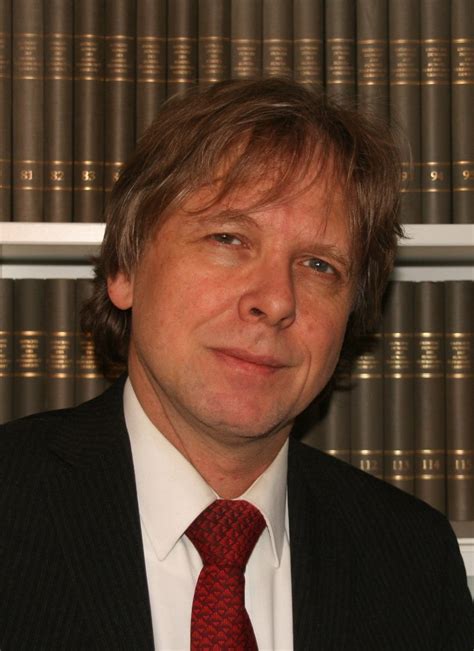A Quote by Alain Badiou
We know that communism is the right hypothesis. All those who abandon this hypothesis immediately resign themselves to the market economy, to parliamentary democracy-the form of state suited to capitalism-and to the inevitable and 'natural' character of the most monstrous inequalities.
Related Quotes
[Coining phrase "null hypothesis"] In relation to any experiment we may speak of this hypothesis as the "null hypothesis," and it should be noted that the null hypothesis is never proved or established, but is possibly disproved, in the course of experimentation. Every experiment may be said to exist only in order to give the facts a chance of disproving the null hypothesis.
But I should be very sorry if an interpretation founded on a most conjectural scientific hypothesis were to get fastened to the text in Genesis... The rate of change of scientific hypothesis is naturally much more rapid than that of Biblical interpretations, so that if an interpretation is founded on such an hypothesis, it may help to keep the hypothesis above ground long after it ought to be buried and forgotten.
As someone who lived under communism for most of my life I feel obliged to say that the biggest threat to freedom, democracy, the market economy and prosperity at the beginning of the 21st century is not communism or its various softer variants. Communism was replaced by the threat of ambitious environmentalism.
It is eminently possible to have a market-based economy that requires no such brutality and demands no such ideological purity. A free market in consumer products can coexist with free public health care, with public schools, with a large segment of the economy -- like a national oil company -- held in state hands. It's equally possible to require corporations to pay decent wages, to respect the right of workers to form unions, and for governments to tax and redistribute wealth so that the sharp inequalities that mark the corporatist state are reduced. Markets need not be fundamentalist.
If the organisms in a species now have trait T, and this trait now helps those organisms to survive and reproduce because the trait has effect E, a natural hypothesis to consider is that T evolved in the lineage leading to those current organisms because T had effect E. This hypothesis is "natural," but it often isn't true!
However the machine would permit us to test the hypothesis for any special value of n. We could carry out such tests for a sequence of consecutive values n=2,3,.. up to, say, n=100. If the result of at least one test were negative, the hypothesis would prove to be false; otherwise our confidence in the hypothesis would increase, and we should feel encouraged to attempt establishing the hypothesis, instead of trying to construct a counterexample.
Neoliberalism is going to fail by being replaced. The system is entirely broken. Whenever you have a system that equates a market economy with a market society and claims that capitalism is democracy, you've not only got a massive lie being imposed on the people, but you've got the foundation for a form of authoritarianism and a much more intensive form of class warfare.
The first objection to Darwinism is that it is only a guess and was never anything more. It is called a "hypothesis," but the word "hypothesis," though euphonious, dignified and high-sounding, is merely a scientific synonym for the old-fashioned word "guess." If Darwin had advanced his views as a guess they would not have survived for a year, but they have floated for half a century, buoyed up by the inflated word "hypothesis." When it is understood that "hypothesis" means "guess," people will inspect it more carefully before accepting it.
I do not yet want to form a hypothesis to test, because as soon as you make a hypothesis, you become prejudiced. Your mind slides into a groove, and once it is in that groove, has difficulty noticing anything outside of it. During this time, my sense must be sharp; that is the main thing - to be sharp, yet open.








































